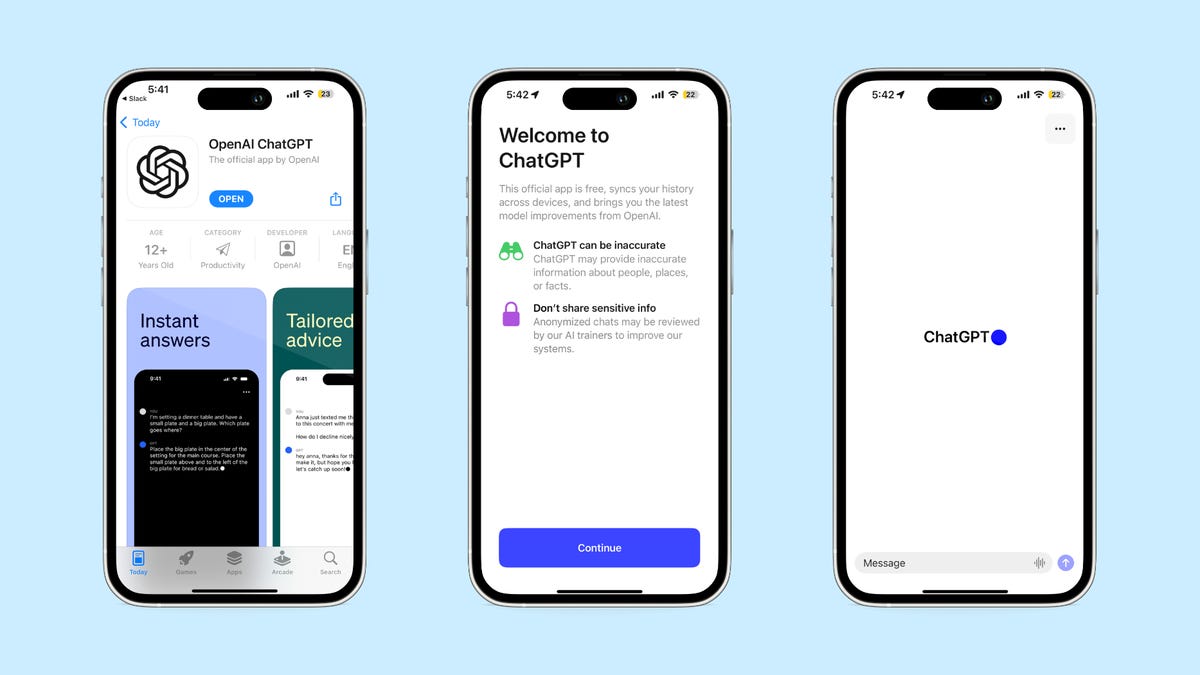OpenAI has dropped a ChatGPT app for iOS, the company said Thursday. The new app is free, and it gives you a way to take OpenAI’s AI chatbot on the go.
The rollout of the iOS app begins in the US and will expand to more countries in the coming weeks, OpenAI said. The app works on iPhones and iPads, supports voice input, and syncs your history across devices.
Android users will get their own version “soon,” the company said.
OpenAI kicked off the AI rush with the release of ChatGPT in November. GPT-4, an update to the large language model that powers the ChatGPT chatbot, was released in March. According to OpenAI, GPT-4 has fewer flaws, produces more-nuanced results and handles more-complex tasks than earlier versions. ChatGPT draws on the huge data sets used to train GPT-4 to answer questions and perform tasks, like passing the bar exam. GPT-4 is available to those who pay $20 per month for ChatGPT Plus.
OpenAI began rolling out plugins for ChatGPT last month but has denied it’s working on GPT-5 yet following an open letter signed by Elon Musk, Steve Wozniak and others at the end of March. The letter urged labs to take at least a six-month pause in artificial intelligence development due to the “profound risks” to society.
In February, Microsoft entered the AI chatbot realm with Bing AI search, which makes use of ChatGPT, and for which Microsoft earlier this week launched widgets on Android and iOS. Rival Google followed with AI Bard in March. The waitlist to try Bard has now been removed, with the service publicly available as of this week.
Chinese giant Alibaba also unveiled a ChatGPT rival, with both Chinese and English capabilities, while Tesla and Twitter CEO Elon Musk has created an artificial intelligence company called X.AI.
CNET has broken down the performance of ChatGPT, Bing and Google Bard to work out which AI chatbot is the most helpful.
Editors’ note: CNET is using an AI engine to create some personal finance explainers that are edited and fact-checked by our editors. For more, see this post.
